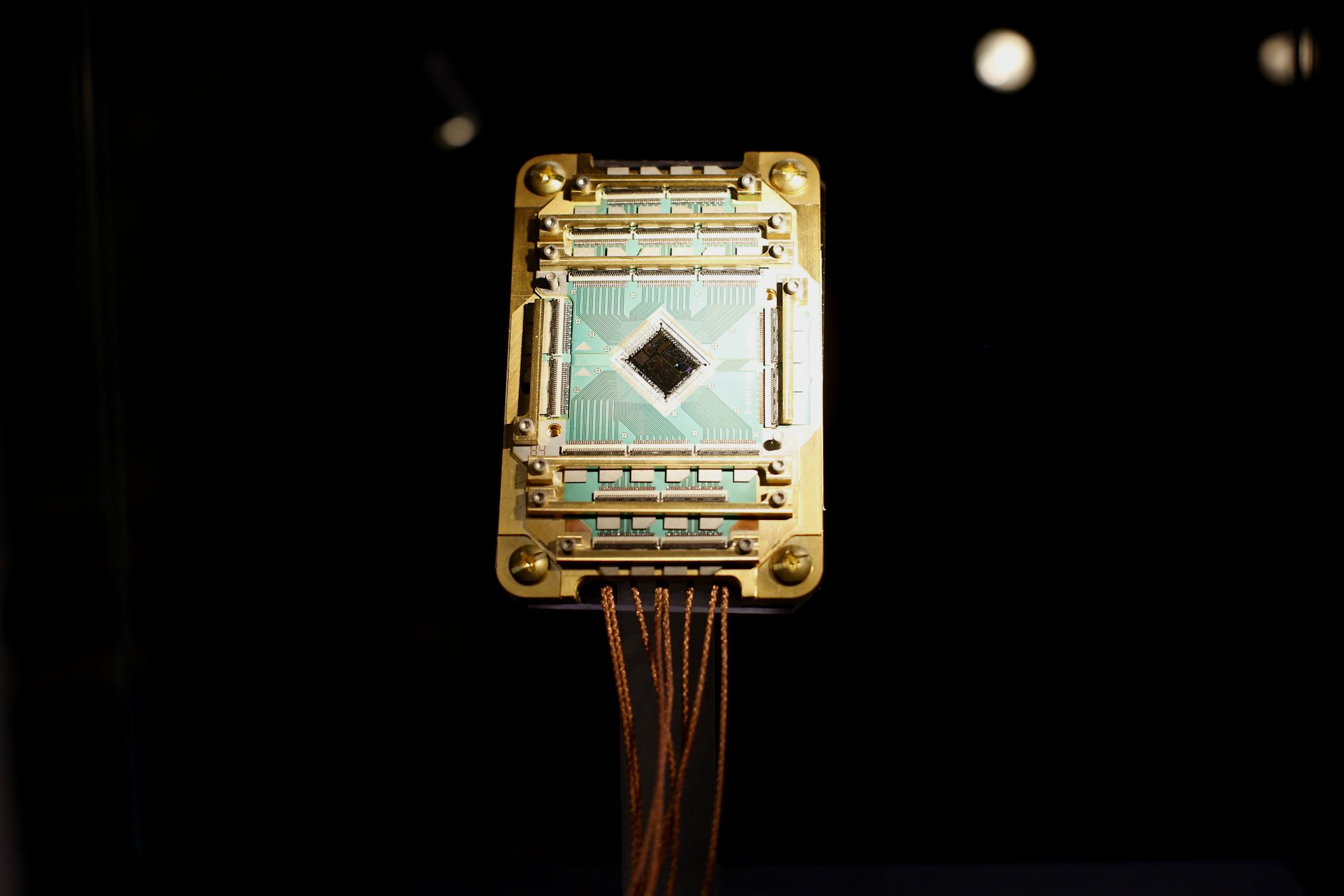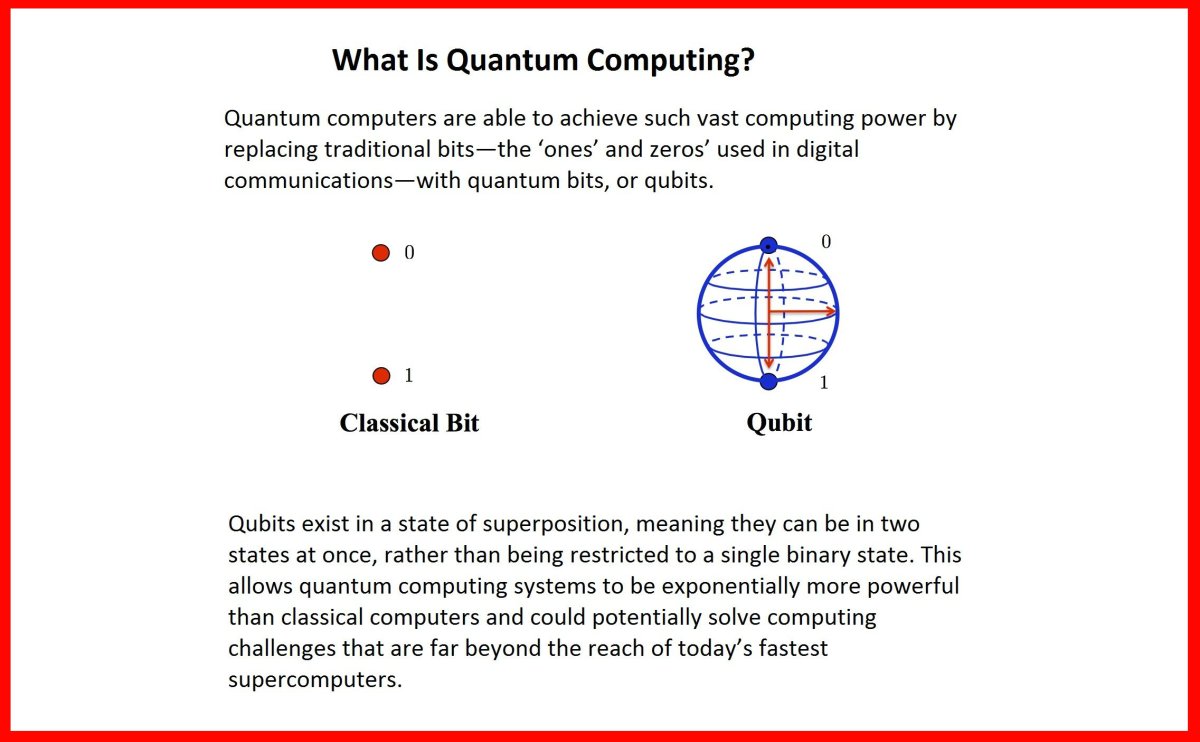
Quantum computers have been hailed for their revolutionary potential in everything from space exploration to cancer treatment, so it might not come as a surprise that Europe is betting big on the ultra-powerful machines.
A new €1 billion ($1.13 billion) project has been announced by the European Commission aimed at developing quantum technologies over the next 10 years and placing Europe at the forefront of "the second quantum revolution."
The Quantum Flagship announced will be similar in size, time scale and ambition as the EC's other ongoing Flagship projects: the Graphene Flagship and the Human Brain Project. As well as quantum computers, the initiative will aim to address other aspects of quantum technologies, including quantum secure communication, quantum sensing and quantum simulation.
A spokesperson for the European Commission tells Newsweek: "The €1 billion flagship initiative on quantum technology will launch in 2018 and place Europe at the forefront of the second quantum revolution, bringing transformative advances to science, industry and society."

Since they were first theorized by the physicist Richard Feynman in 1982, quantum computers have promised to bring about a new era of ultra-powerful computing. One of the field's pioneers, physicist David Deutsch, famously claimed that quantum computers hold the potential to solve problems that would take a classical computer longer than the age of the universe.
The Quantum Flagship comes in response to the Quantum Manifesto, which called for significant investment into quantum technologies and was endorsed by more than 3,000 individuals from academia, industry and governmental institutions.
The manifesto, which will be officially released next month at the Quantum Europe Conference in Amsterdam, states that quantum technologies will create a new "knowledge-based industrial ecosystem" that will create long-term economic, scientific and societal benefits.
One of the manifesto's authors, director of Integrated Quantum Science and Technology (IQST) Tommaso Calarco, tells Newsweek that the Quantum Flagship is a "now or never moment" for Europe.
"No single company or organisation could achieve significant advances by themselves," Calarco says. "Quantum technologies will have an impact on a number of areas, from security and communications, to health and metrology.
"One of the most ambitious aspects of this is the development of quantum computers. In the long term we will also see the emergence of quantum computers. No one expects them to be on the market within the next 10 years."

Some companies, most notably Canada's D-Wave, claim to have built quantum computers, however Calarco and other leading computer scientists and researchers contend that the machines should not be referred to as quantum computing systems. NASA, Google and the CIA are among the companies and organizations working with D-Wave machines.
"D-Wave's machines are not recognized by the scientific community," says Calarco. "That doesn't mean what they've created isn't extremely exciting. In eight years they've put together a platform that can compete with silicon—a technology that has been in development for 70 years."
The EC will be helped by Horizon 2020, the EU Research and Innovation programme, in funding the Quantum Flagship, as well as other not-yet-named sources at EU and national levels.
One of the main hopes of the initiative is that quantum technologies will make the leap from research labs to commercial and industrial applications. Matthias Troyer, a computational physics professor at the Institute for Theoretical Physics at ETH Zurich—one of the institutes set to benefit from the fund—believes the initiative acknowledges the fact that this step is now ready to be made.
"Quantum technologies have matured to the point where we are ready to transition from academic projects to the development of competitive commercial products that within the next decade will be able to perform tasks that classical devices are incapable of," Troyer tells Newsweek.
This is a sentiment shared by Ilyas Khan, co-founder and CEO at Cambridge Quantum Computing (CQC). Khan claims that the Quantum Flagship puts Europe at the front of the race to build the world's first quantum machines.
CQC has been one of the pioneers in early quantum computer research and in 2015 developed the first operating system capable of accurately simulating a quantum processor. The t|ket> operating system allows research teams to determine the type of operations a quantum computer can perform.
"It has become increasingly clear that it is now only a matter of a relatively short time before quantum technologies become of practical importance at the strategic level for governments and large corporations," Khan says. "The elevation of this sector by the European Community is extremely positive."
Uncommon Knowledge
Newsweek is committed to challenging conventional wisdom and finding connections in the search for common ground.
Newsweek is committed to challenging conventional wisdom and finding connections in the search for common ground.
About the writer
Anthony Cuthbertson is a staff writer at Newsweek, based in London.
Anthony's awards include Digital Writer of the Year (Online ... Read more
To read how Newsweek uses AI as a newsroom tool, Click here.








